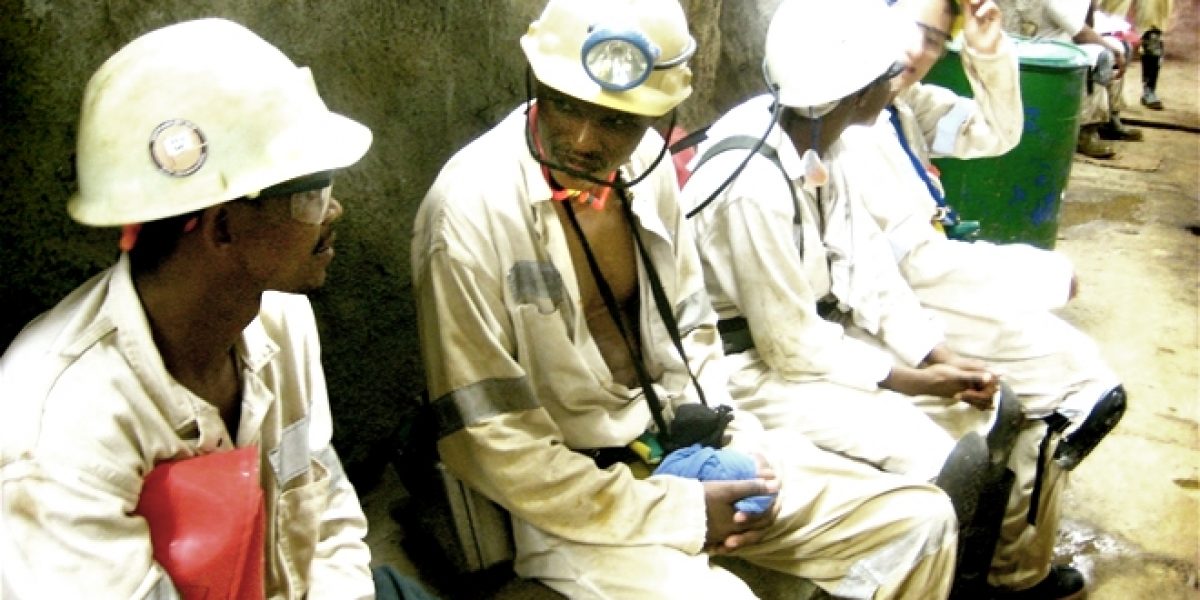This occurred against the backdrop of negative press surrounding the mineral licensing process, managed by the Department of Mineral Resources (DMR) and the ongoing debate surrounding the nationalisation of South Africa’s mines. Stakeholders invited to the public hearings included DMR, the Chamber of Mines, COSATU, and other interested parties. Key issues discussed at the public hearings included the transfer of ownership of mining assets to historically disadvantaged South Africans (HDSAs), beneficiation, employment equity and mine community development. During the public hearings, the committee chairperson, Fred Gona, said ‘recommended amendments to the mining charter must ensure that workers and communities benefit more from the industry than they do at present’. However, the process did not go far enough to address underlying issues of empowerment relating to South Africa’s mining sector.
While the new legislation, the Amended Mining Charter of 2010, is aimed at addressing various shortcomings in the implementation of the Mining Charter of 2002, it fails to consider the rights of communities in terms of community consultation; community input into planning for mining developments; direct community control of shares in mining companies; and lastly, new mechanisms (beyond existing BEE policies) by way of which communities can directly benefit from mining operations in a meaningful, equitable manner. The 2010 Mining Charter aims to transform the mining industry by transferring 26% ownership to enable meaningful economic participation of HDSAs by 2014. According to the DMR, the amendments and clarifications contained in the Amended Charter are intended to introduce ‘an element of sustainable growth of the mining industry, which seeks to ensure sustainable transformation of the mining industry’.
The ownership targets, including the requirement for ‘meaningful economic participation’, are one of the more heavily criticised aspects of the Amended Charter. The economic viability of mining companies may be threatened as the asset base of a mining company seeking to comply with the targets, may be eroded by mandatory dividend payments or similar distributions. Moreover, the financing costs for mining companies may become prohibitive as the payment of distributions to BEE shareholders will have to be factored into such costs from the inception of the venture. It is instructive to note that the Amended Charter fails to provide any guidance on the levels of distribution payments to be made to BEE shareholders or address the legal mechanism through which the preferential payment of such distributions to BEE shareholders is to be made. The objectives of BEE transactions have been criticised since the inception of the Old Charter and the revisions in the Amended Charter have done little to silence critics. Joel Netshitenzhe, executive director of the Mapungubwe Institute of Strategic Reflection and member of the ANC’s National Executive Committee, has stated that BEE objectives should only be one part of the mining strategy. In his view, instead of being an end in itself, ownership should be seen as a means of promoting the government’s strategic imperatives of addressing poverty, unemployment and inequality.
The 2010 Charter does provide clarity in respect of targets set for diversity, equitable representation at junior, middle and senior management levels, skills development, measures to improve the standards of housing and living conditions for mine workers, environmental management and health and safety standards. It also introduces the concept of a ‘social development fund’ into which multinational suppliers of capital goods must contribute a minimum of 0.5 per cent of their annual income generated from local mining companies. However, the Amended Charter does not address the manner in which the fund is to be administered.
Nonetheless, it represents a significant attempt by the South African government to increase participation in the mining sector by HDSAs. While these measures are to be applauded, their impact and ability to effect the proposed changes in the South African mining regulatory regime remain to be seen. Initial industry reaction to the new measures would suggest that the South African government has introduced more uncertainty to the regulatory regime than intended and further steps will have to be taken to provide the clarity and consistency required to implement these new rules. In order to advance the goal of expanding opportunities for HDSAs the mining procurement needs to focus on more than just BEE entities.
In order to support entrepreneurs the Mining Charter should pay special attention to ways mining companies can support and procure consumer goods and relevant services from SMMEs. This can further expand the economic impact of mining operations and provide opportunities for development of small entrepreneurs and start-up companies in the up- and downstream value chain.








